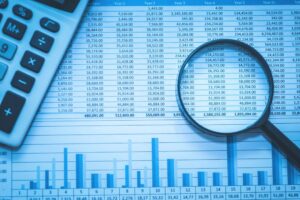In the complex realm of finance and business, discrepancies, fraud, and disputes often hide beneath the surface, threatening the integrity and stability of organizations. To address these issues and unearth the truth behind financial discrepancies, forensic accounting emerges as a powerful tool. This specialized branch of accounting delves deep into financial records, employing investigative techniques to uncover fraud, mismanagement, and other irregularities. This article aims to explore the significance of forensic accounting, delineate its applications across various scenarios, and highlight its pivotal role in safeguarding businesses and finances.
Understanding Forensic Accounting
Forensic accounting is the meticulous examination and analysis of financial records to detect irregularities, discrepancies, or fraudulent activities. Unlike traditional accounting practices that primarily focus on recording financial transactions, forensic accountants utilize their expertise in auditing, accounting, and investigation to dig deeper into financial data. Their objective is not merely to quantify numbers but to uncover the truth, resolve disputes, and provide accurate, evidence-based financial information for legal proceedings.
Instances Requiring Forensic Accounting Expertise
Fraud Investigations: Instances of fraudulent activities such as embezzlement, financial statement fraud, or asset misappropriation necessitate the intervention of forensic accountants. They meticulously scrutinize financial records, identify discrepancies, track transactions, and reconstruct financial activities to unearth fraudulent schemes. These investigations often serve as crucial evidence in legal proceedings.
Dispute Resolution: In cases of business disputes, mergers, acquisitions, or contract breaches, forensic accountants play a vital role. They evaluate financial data objectively, providing expert opinions and testimony to resolve disputes. Their analysis helps in quantifying losses, assessing damages, and presenting credible financial evidence in court.
Regulatory Compliance and Due Diligence: Businesses must comply with various regulations and standards. Forensic accountants ensure adherence to these regulations by conducting compliance audits and due diligence investigations. They thoroughly examine financial records, identifying potential risks and ensuring regulatory compliance to prevent legal repercussions.
Bankruptcy and Insolvency Proceedings: During bankruptcy or insolvency proceedings, forensic accountants are instrumental in assessing the financial condition of a distressed entity. They analyze financial data to ascertain the reasons behind insolvency, track assets, identify potential fraudulent activities, and provide valuable insights for the restructuring or liquidation process.
Insurance Claims and Fraud: Forensic accountants assist insurance companies in assessing claims by verifying the accuracy of financial information. They investigate suspected fraudulent insurance claims, analyze policy coverage, and quantify losses, ensuring fair settlements and preventing insurance fraud.
Conclusion
Forensic accounting near me stands as a crucial pillar in the realm of finance and business. Its specialized techniques and investigative methodologies empower professionals to uncover financial irregularities, fraud, and disputes. By leveraging their expertise in accounting, auditing, and investigation, forensic accountants safeguard businesses, mitigate risks, and provide invaluable support in legal proceedings. As the financial landscape continues to evolve, the demand for forensic accounting expertise remains steadfast, highlighting its indispensable role in preserving financial integrity and ensuring transparency in today’s complex business environment.
